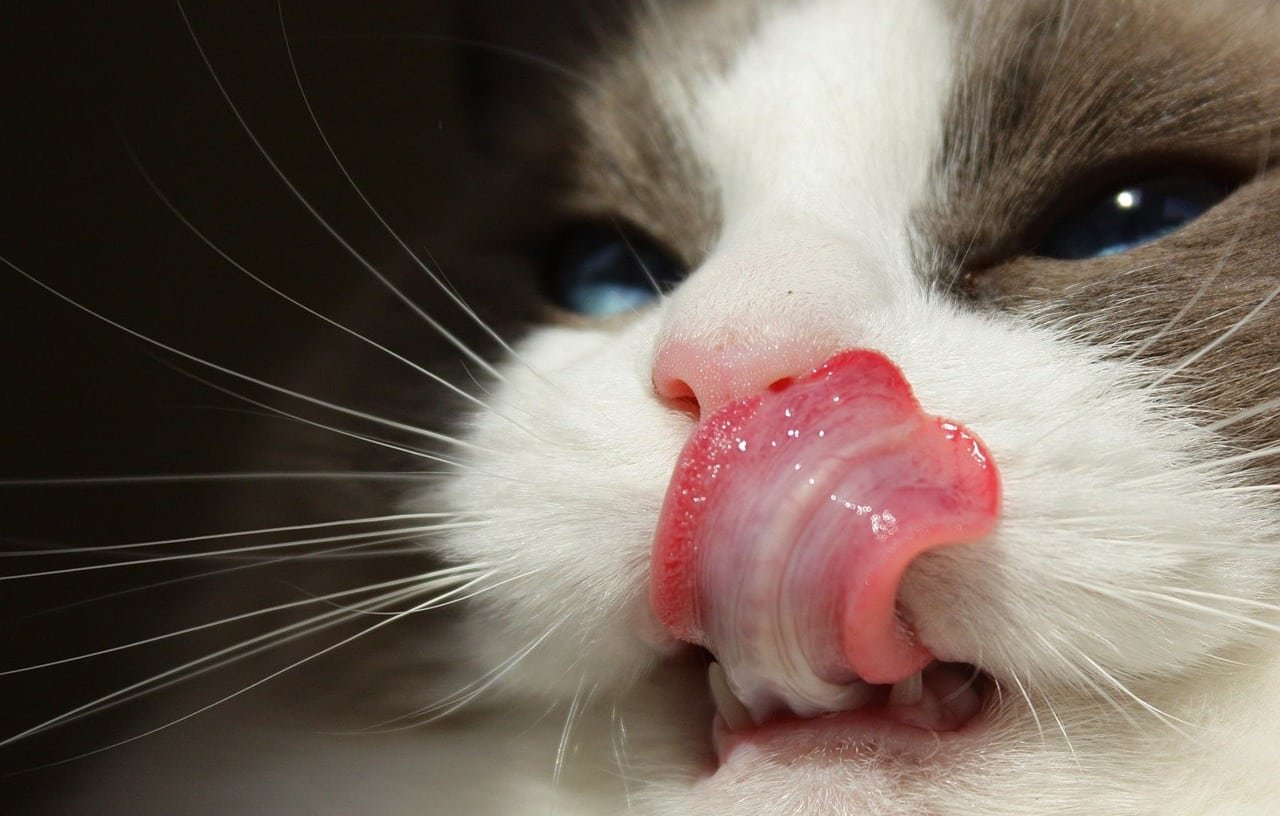Cats have a plethora of endearing and sometimes perplexing behaviors, one of which is sleeping with their tongues sticking out. While this can be an adorable sight for pet owners, it often leads to questions about why cats exhibit this behavior. Understanding the reasons behind a cat sleeping with his tongue out can provide insights into their health and comfort levels. This article delves into the various explanations for this behavior, helping you ensure your furry friend’s well-being.
Understanding the Basics of Cat Behavior
Cats are creatures of habit, and their behaviors often serve specific purposes. Sleeping with their tongues out, while not common in all cats, can be seen occasionally. This behavior can be due to several factors, ranging from relaxation to potential health issues. Observing the context and frequency of this behavior is crucial in determining whether it is normal or a cause for concern.
Common Reasons Why Cats Sleep With Their Tongues Out
1. Deep Relaxation and Comfort
One of the most benign reasons for a cat to sleep with his tongue out is deep relaxation. When cats reach a state of profound relaxation, their muscles, including those controlling the tongue, can become very relaxed. This can cause the tongue to slip out slightly. If your cat exhibits this behavior while in a deep sleep, it is likely a sign that he feels safe, comfortable, and content in his environment.
2. Dental or Oral Issues
Dental problems can be a significant reason why a cat sleeps with his tongue out. Conditions such as gingivitis, tooth decay, or oral infections can cause discomfort, prompting the cat to keep his mouth slightly open and his tongue out. Regular dental check-ups are essential to rule out any serious issues. If you notice other symptoms such as bad breath, drooling, or difficulty eating, it’s crucial to consult a veterinarian for a thorough examination.
3. Age-Related Changes
As cats age, they may experience changes in their muscle tone and control. Older cats might find it harder to keep their mouths fully closed when they relax, resulting in their tongues sticking out while sleeping. This is generally normal but should be monitored to ensure it isn’t due to an underlying health condition.
4. Breed Characteristics
Certain cat breeds are more prone to sleeping with their tongues out due to their facial structure. Breeds like the Persian, with their flat faces, or the Maine Coon, with their large, muscular jaws, might exhibit this behavior more frequently. The structure of their skulls and mouths can naturally cause their tongues to slip out more easily.
5. Residual Effect from Grooming
Cats spend a significant portion of their day grooming themselves. Sometimes, after an intensive grooming session, a cat might fall asleep with his tongue still partially out. This can be a simple residual effect of grooming and is usually harmless. If your cat often falls asleep shortly after grooming, this might be the reason for the tongue-out behavior.
6. Neurological Issues
In some cases, a cat sleeping with his tongue out can be indicative of neurological issues. Conditions affecting the nervous system, such as strokes or brain injuries, can impair a cat’s muscle control, including those controlling the tongue. If your cat shows other symptoms such as disorientation, difficulty walking, or seizures, immediate veterinary attention is necessary.
7. Medication Side Effects
Certain medications can cause a cat to sleep with his tongue out as a side effect. If your cat has recently started a new medication and you notice this behavior, it might be related to the drug. Discussing any changes in your cat’s behavior with your veterinarian can help determine if the medication is the cause.
8. Respiratory Issues
Respiratory problems can cause a cat to breathe through his mouth, leading to the tongue sticking out during sleep. Conditions such as upper respiratory infections, asthma, or chronic bronchitis can result in labored breathing. If your cat exhibits heavy breathing, coughing, or nasal discharge along with sleeping with his tongue out, seeking veterinary care is essential.
Monitoring and Managing the Behavior
While sleeping with the tongue out is generally harmless, it’s important to observe the context and frequency of your cat’s behavior. Here are some steps you can take to monitor and manage this behavior effectively:
Observe and Note Patterns
Keep track of when and how often your cat sleeps with his tongue out. Noting the circumstances, such as the time of day, environment, and any preceding activities, can help determine if the behavior is linked to specific conditions or times.
Regular Dental Check-Ups
Ensure your cat has regular dental check-ups to rule out any oral health issues. Dental problems can be a significant cause of a cat sleeping with his tongue out. Maintaining good oral hygiene through regular brushing and dental cleanings can prevent many issues.
Maintain a Comfortable Environment
Provide a comfortable and stress-free environment for your cat. Ensuring that your cat has a cozy place to sleep and is free from stressors can help him relax fully and sleep comfortably.
Monitor for Additional Symptoms
Be vigilant for any additional symptoms that might accompany the tongue-out behavior. Symptoms such as drooling, bad breath, difficulty eating, coughing, or disorientation should be promptly addressed with veterinary care.
Consult a Veterinarian
If you notice any concerning signs or if the behavior persists, consult a veterinarian. Early intervention can prevent potential health problems from escalating and ensure your cat’s overall well-being.
When to Seek Veterinary Advice
While occasional tongue-out sleeping is usually harmless, there are certain signs that warrant a visit to the veterinarian:
- Persistent or Frequent Behavior: If your cat sleeps with his tongue out frequently or for extended periods, it could indicate an underlying issue that needs medical attention.
- Accompanying Symptoms: Tongue-out sleeping accompanied by other symptoms such as drooling, difficulty eating, changes in behavior, or signs of respiratory distress should be evaluated by a veterinarian.
- Signs of Pain or Discomfort: If your cat appears to be in pain or discomfort while sleeping with his tongue out, it’s essential to seek veterinary advice to rule out any serious health issues.
Understanding the Differences Between Cats and Other Animals
Unlike dogs, which commonly sleep with their tongues out and pant to cool down, this behavior is less typical in cats. Therefore, when a cat exhibits this behavior, it’s important to pay close attention and consider the potential underlying causes. Cats have different physiological needs and behaviors compared to other animals, making it crucial to understand their specific requirements and health indicators.
The Joy of Understanding Your Cat
Understanding why your cat sleeps with his tongue out can provide valuable insights into his health and behavior. While it can sometimes be a sign of an underlying issue, it is often just another quirky aspect of your feline friend’s personality. By observing your cat closely and ensuring he receives regular veterinary care, you can enjoy many more adorable and heartwarming moments together, knowing that your cat is happy and healthy.
Conclusion
Cats sleeping with their tongues out is a behavior that can stem from various causes, ranging from the benign to the medically significant. Understanding the context and frequency of your cat’s behavior can help determine whether it’s simply a charming habit or a sign of an underlying issue. By keeping an eye on your cat’s overall health and behavior, you can ensure that your furry friend remains happy and healthy, allowing you both to enjoy many more endearing moments together.
In the world of feline behavior, sleeping with the tongue out stands out as one of the most adorable and intriguing. Embrace this quirky habit, and remember, a happy cat often shows his contentment in the most unexpected ways—even by sleeping with his tongue out.
Discover more from EMMOCEB
Subscribe to get the latest posts sent to your email.






